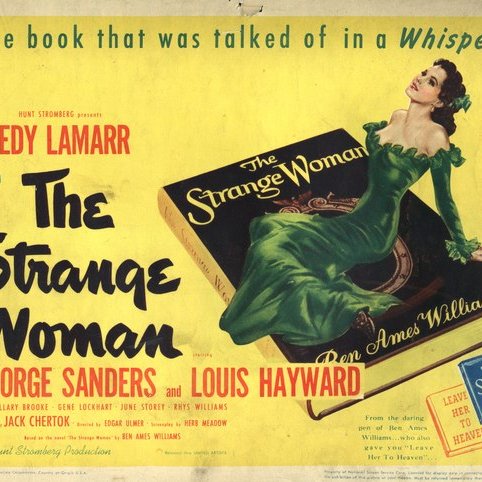Exhibits

Although the family moved from Mississippi a few months after his 1889 birth, Ben Ames Williams returned to his mother's native state each summer during his childhood. By 1919, Williams was one of the most successful short story authors in the country. The primary outlet for his work was the Saturday Evening Post which carried 135 of his stories and 35 of his serialized novels. By the 1930s, however, he had completely abandoned the short story format to concentrate exclusively on novels. Williams ranged across several genres including adventure stories, mysteries, New England regional fiction, historical novels, and psychological fiction. Hollywood produced twenty-six movies based on Williams' creations. Half of these creations were silent films and the other half, "talkies." Five of these adaptations were actually remakes of earlier cinematic productions.
Lon Chaney plays one of the leading characters in Williams' rousing sea adventure All the Brothers Were Valiant (1923). Five years later, Joan Crawford stars in the silent remake entitled Across to Singapore (1928). MGM produced yet another remake under the original title in 1953 with Ann Blyth, Stewart Granger, and Robert Taylor taking over the roles composing the love triangle. On display is the Loew's screenplay of this final version dated "5-21-52 with changes 8-22-52 thru 10-27-52." This third version earned an Academy Award nomination for "Best Cinematography."
The dust jacket for the 1935 edition of Williams' Small Town Girl features Janet Gaynor on the cover in a promotional tie-in with the 1936 MGM movie. Directed by William A. Wellman and including a relatively unknown Jimmy Stewart among its cast, the film follows the story of a local girl who weds a playboy while he is intoxicated and then attempts to reform him. In 1953, MGM adapted the same story and title into a musical starring Jane Powell and Ann Miller. "My Flaming Heart," one of the tunes from that film, received an Oscar nomination for "Best Original Song."
The two most remembered movies adapted from Williams' work both appeared in 1946 and are prime examples of the female psychopathology genre popular in that decade. Leave Her to Heaven stars Gene Tierney as a woman so desperately in love with her husband and jealous of his company that she deliberately miscarries and fails to aid her drowning brother-in-law. She later arranges her suicide so as to frame another woman for the "murder." Nominated for four Oscars, the movie received the award for "Best Cinematography." Meanwhile, The Strange Woman features Hedy Lamarr as a woman who either dominates or destroys the men around her. One contemporary reviewer claimed that Williams' book was a "much too long recital of cruelty, cunning, and copulation," and several public libraries refused it circulation. The lobby card for the film clearly capitalizes on the notoriety of this publication.
